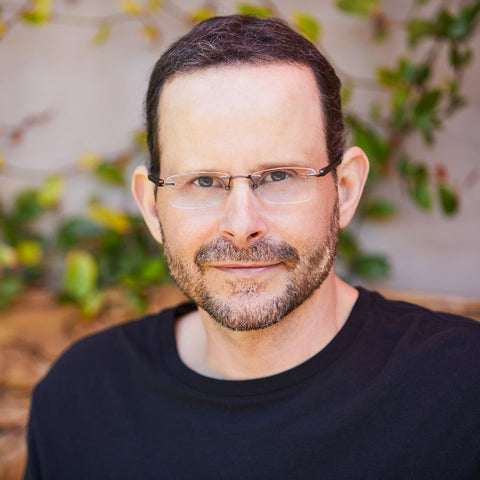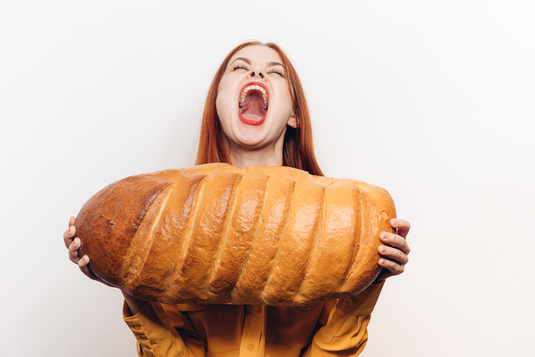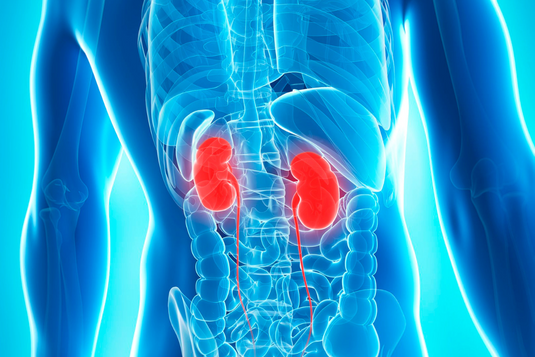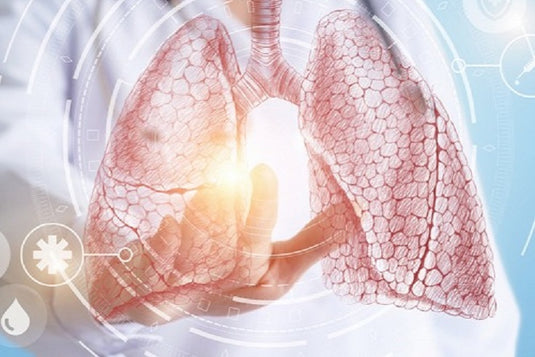When it comes to cholesterol, as well as blood pressure, we often think that it's all about the heart and cardiovascular system. We know the terms HDL (high-density lipoprotein), LDL (low-density lipoprotein), VLDL (very low-density lipoprotein), although there are many more varieties of proteins, triglycerides and lipoproteins that medical research and science have yet to discover. . We imagine hardening of the arteries and plaque in the heart valves, and rightly so.
How does this start? It cannot form by itself out of nothing. You don't wake up one morning with elevated cholesterol because the cholesterol fairy visited you in the night and instead of replacing your tooth with a coin, replaced your peace of mind with a prescription for statins. High bad cholesterol or even low good cholesterol has to come from somewhere.
Medical studies and science explain the mystery by stating that in addition to the high cholesterol foods we consume, our bodies also create this problematic cholesterol. This is a simple explanation that should put us at ease. It's true that eating less fried foods, oils, and cheeseburgers will improve your life and your cholesterol. At the same time, unexplained high cholesterol levels are a much bigger and more complex problem than the medical community realizes.
THE LIVER'S ROLE FOR CHOLESTEROL
Elevated cholesterol has a direct relationship with the liver, the organ responsible for balancing, regulating, storing, organizing and other important processes. You already know that no matter how hard he works, he gets exhausted taking care of us around the clock if he doesn't have a chance to recover. One of the casualties is cholesterol regulation. The remarkable chemical function of the liver to produce the so-called good cholesterol (HDL) begins to decline. The body becomes overloaded with fat, whether from healthy or unhealthy sources, it can no longer support its production functions of good cholesterol. Nor can it deal with so-called bad (LDL) cholesterol.
Imagine you've gone on a long road trip and after driving all day and all night, you're exhausted and can't go on any longer. Desperate, you start looking for a roadside stand that is still open. At 3 a.m. when you finally find it and pull into the parking lot, you see that the lights inside are going out. You sit in the car, tired and worn out, but decide it's still worth a try. At the door, the waitress turns over the "CLOSED" sign with a note underneath: "Tomorrow we will be open late."
You knock just in case and she opens the door saying,
– I'm sorry, but the kitchen is closed at night.
You look behind it, you see employees inside cleaning and tidying up for the next day.
– People are still working. Is there really nothing you can offer me?
Like the night shift at this restaurant that sweeps the floor, picks up the trash, wipes the windows, makes sure there's enough oil for tomorrow, and cleans the dirty restrooms, your liver is too busy regulating and holding back the bad cholesterol that would otherwise start to build up. saturate the blood and the cardiovascular system. He is consumed with cleaning, storing and reorganizing in his desperate need to protect you. For years and even decades, he fought this way to control bad cholesterol. It never gets a pat on the back and some praise: "Hey, liver friend, good job!". It never gets recognition, praise or a medal for its achievement. It is forced to put up with us not understanding its limits and reaching ourselves the edge of ours, making it work even harder.The liver is like the waitress who takes pity on us after our long journey and promises to find us a loaf of bread and butter after the restaurant chores are done.
When we choose foods that increase good cholesterol, the liver stores their components, knowing that it will most likely face a series of days in which we will choose high-fat foods that will burden it and weaken it, destroy the basic chemical functions of the good cholesterol, which will allow the bad cholesterol to take over. When we eat foods rich in bad cholesterol, our liver first tries to neutralize it without eliminating it completely, because the bad cholesterol in the blood does not cause damage as long as it moves freely - it is not the cause of heart disease. The liver prefers to release it throughout the body like a warning signal or a message written on the wall of an ancient pyramid that we may someday stop misinterpreting and instead decode its true meaning: "HELP." However, the liver has the responsibility of trying to deal with the excessive amount of bad cholesterol, so while it releases a lot of it into the blood, another part holds it back, storing it in the hope that one day it will be able to throw it out. from the body via the blood, kidneys or intestinal tract.
We all have our dreams and aspirations – and so does the liver. His dream is to keep us safe. He knows that this dream may not come true. However, he continues to fight. If the liver becomes stagnant, burdened by the invasion of toxins, viruses and/or bacteria , it cannot release the small fatty deposits of bad cholesterol. The dream is dying. Instead, these cholesterol deposits join with all the other fat cell deposits in and around the liver. These are fat deposits that come from a diet high in fat - again, whether it's good fat or bad fat. If you think your diet isn't, let me remind you that "high in fat" is equivalent to "high in protein." Now maybe it will dawn on you. No matter what your trainer says, no matter how seemingly healthy your diet is, high protein turns into high fat, which will slowly lead to a fatty liver (which can easily go undetected), from which you will cholesterol also increased.
Cholesterol levels are not determined by weight, they depend on whether the liver is in a state of reduced function or steatosis. This is another example of a person being in good shape, taking care of their physical health by choosing seemingly healthy foods and yet having elevated bad cholesterol or low levels of good cholesterol. It is possible that a person is thin and the results show high cholesterol. If she or he has a fatty liver full of toxins and pathogens that have built up in it over time, regardless of that person's weight, the liver will reach a point where it can no longer store cholesterol and other fats - good or bad, and will not be able to produce good cholesterol. Thus, the excess bad cholesterol will continue to be carried in the blood neutralized, disorganized and with nowhere to go. Eventually, it will build up in places like the heart and arteries and cause the problems we associate with high cholesterol.
This does not mean that medication such as a statin is the solution. Although the statin was able to reduce the bad cholesterol in the blood results, the liver problem remained unsolved. Statins are the best creators of fake effects that sometimes show up and sometimes don't, just don't help you. Consider one of the principles of focus – nothing ever really goes away. So when a statin makes bad cholesterol seem to go away, it doesn't really go away. Where did he go? The drug forces cholesterol to quickly begin to stick to the heart and vessel walls. It is better if it remains in free movement as a warning sign that a liver problem is developing which can lead to cardiovascular disease.
The liver knows that if bad cholesterol can't be controlled, it's better to stay in free flow than head to the heart and arteries. The increased amount of cholesterol in the blood alone does not lead to stroke and heart attack, as the medical community believes. The truth is that they are the result of elevated blood fats from a diet high in fat and protein, not enough omega-3 fatty acids and antioxidants combined with too much omega-6 fatty acids and their dysfunctional cousins (fatty acids mixed with the unsuitable ingredients heat-treated at high temperature and mutated by cooking techniques such as frying). These fats and fatty acids stick to the walls of the cardiovascular system and accumulate there, while the liver becomes weaker and produces less bile that would otherwise break down the fat. Higher levels of fat in the bloodstream make normal flow difficult, so when someone gets a small, simple viral or bacterial infection in the blood, there isn't enough room in the blood vessels for it to clear up naturally. As a result, clots or larger infections can develop due to lack of oxygen, which can then travel further, in some cases to the brain. Statins capture free-floating cholesterols that do not attach to the walls of the cardiovascular system and cause them to mix with radical fats. The combination of these creates plaque in these places and accelerates the development of cardiovascular disease.
THE ROAD TO IMPROVEMENT
Long before there are noticeable signs of plaque or hardening of the arteries, the liver condition that eventually causes them develops. This means you can stop a cholesterol problem long before it starts. Protecting yourself from high cholesterol means learning to take care of yourself and your liver. It's better not to have to knock on your liver's door after shutdown to ask it to do something extra. You need to be active and moderate to enjoy a long life. If you have already been diagnosed with a cholesterol or plaque problem, don't be afraid - treatment is very easy. Incorporating the right foods and liver care with other techniques, such as nutritional supplement protocols, can improve these problems.
HEALER MEDIUM SUPPLEMENT PROTOCOL FOR HIGH CHOLESTEROL
Real Cause: A stagnant and fatty liver from multiple toxins and pathogens, as well as a prolonged high-fat, high-protein diet, causes the organ to lose its ability to make good cholesterol and store bad cholesterol.
- Fresh celery stem juice: up to 1 liter daily;
- Aloe Vera: 5 or more centimeters of fresh gel (with skin removed) daily;
- Amla fruit: 2 tsp. daily;
- Powdered barley grass juice : 2 tsp. daily;
- Coenzyme Q10: 2 capsules daily;
- Curcumin : 2 capsules daily;
- Omega-3 EPA and DHA (without fish) : 1 capsule daily (taken with dinner);
- Ginger: 2 capsules, 1 cup of tea with 2 bags or freshly grated or juiced daily;
- Milk thistle : 1 dropper daily;
- Peppermint: 1 cup of tea daily;
- Spirulina : 2 tsp. daily;
- Vitamin B12 (as adenosylcobalamin with methylcobalamin) : 1 dropper daily;
- Vitamin C : 4, 500-milligram capsules or 2 tsp. liquid liposomal daily;
- Wild blueberries powder: 2 tbsp. daily;
- Zinc (as liquid zinc sulfate) : up to 1 dropper daily.
The article is an excerpt from Anthony William's book Liver Help , and the nutritional supplement protocol is from Cleanse for Health . You will find more detailed information about this and other problems and conditions in the books that you can buy from prividnik.com








